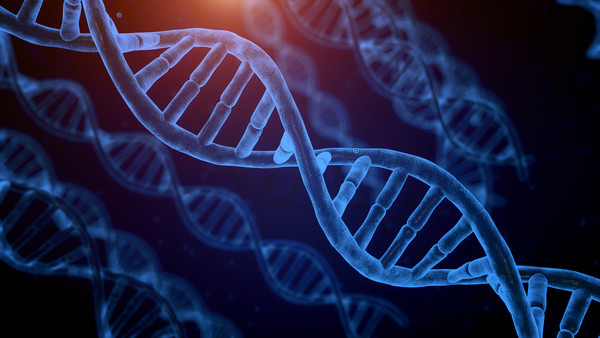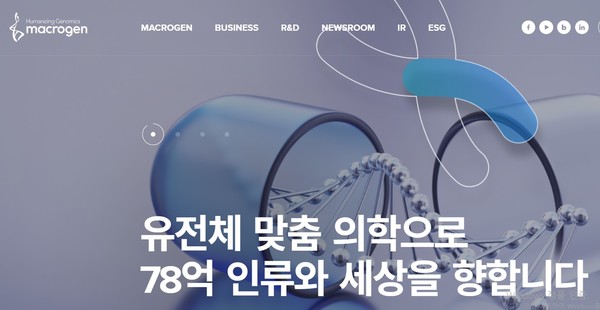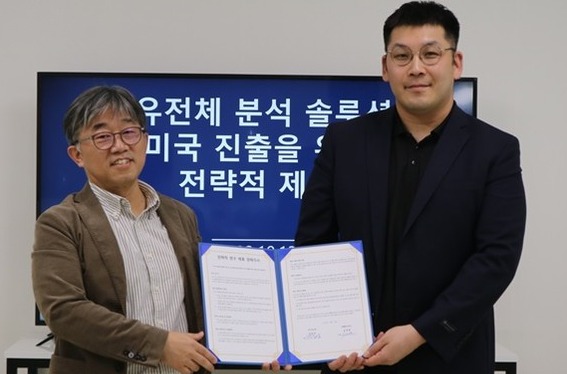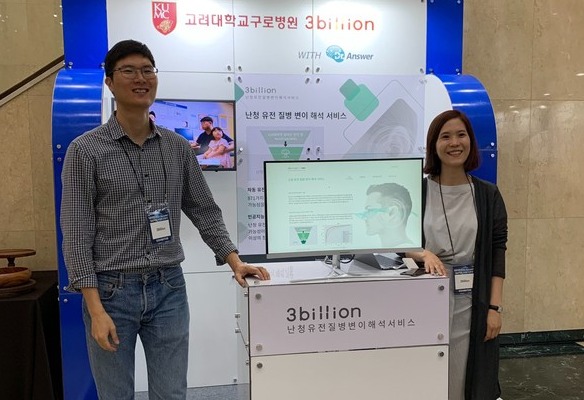NGS-based diagnosis of cancer, rare diseases increasing in precision medicine
As next-generation sequencing (NGS)-based precision medicine advances, industry officials are emphasizing the importance of genome diagnostic technology.
Unlike in the past when treatments were developed for each disease, treatments can be used according to individual gene expression, and genome diagnostic technology is developing rapidly in oncology and rare diseases.
NGS helps to read genetic information quickly. It includes “targeted sequencing,” which selects and analyzes particular DNA or RNA to view the desired gene parts, “whole exome sequencing,” which examines only the exon region that accounts for about 1 percent of all genes, and “whole genome sequencing,” which analyzes the entire genome.
Before NGS testing was developed, genome diagnosis was mostly centered on polymerase chain reaction (PCR) tests. However, these tests took too much time, effort, and cost when analyzing many targets. NGS tests overcame the shortcoming by analyzing DNA individually.
Genome diagnostic market grows rapidly after NGS introduction
The genome diagnostic market is growing rapidly with NGS being used not only for diagnosis but new drug development. The genome market is divided into two – genome analysis products and genome analysis services. According to the Biotech Policy Research Center, the analysis product market reached $34.8 billion, and the analysis service market, $200 million, in 2019, respectively.

In Korea, the NGS testing market is mainly about the liquid biopsy. The liquid biopsy market showed an average annual growth rate of 23 percent from 17.8 billion won in 2013 to 37.6 billion won in 2017 and is expected to reach 105.1 billion won in 2022.
The global market is mainly led by Illumina, Thermo Fisher Scientific, and Roche.
In Korea, sales of a genome diagnostics company recently exceeded 100 billion won a year.
The Korean government is actively supporting the industry with a regulatory sandbox.
Leading companies in this area include GC Genome, Macrogen, LabGenomics, Geninus, and 3billion.
GC Genome aims to offer treatment beyond diagnosis
GC Genome focuses on disease diagnosis service through genome analysis in prenatal/neonatal care, cancer, rare genetic diseases, and health checkups, and conducts good clinical laboratory practice (GCLP).
In particular, unlike the existing genome analysis companies that have focused mainly on research, GC Genome aims to utilize genome analysis information for the diagnosis and prediction of diseases, and even customized treatment.
GC Genome is testing various types of cancer through the “Green Plan” series. It also offers Guardant360, a liquid biopsy test service of Guardant Health.

'Guardant360' analyzes genetic mutation information by collecting circulating tumor DNA (ctDNA) released from tumor cells into the bloodstream. Trace amounts of circulating tumor DNA can be detected in the blood by next-generation digital sequencing technology.
GC Genome also conducts testing for rare genetic diseases. These include chromosome microarray (CMA), targeted exome sequencing (TES), diagnostic exome sequencing (DES), full-length exome sequencing (WES), and diagnostic genome sequencing (DGS).
DGS in particular can examine the entire genome consisting of 3 billion base sequences including exons and introns in more than 20,000 human genes.
Macrogen going global
Macrogen is a genome analysis company providing research services, diagnosis, and personal diagnosis, and genome analysis services for government agencies, universities, and research institutes. The genome analysis services account for more than 90 percent of the company’s sales.
Macrogen’s business includes CES(Capillary Electrophoresis Sequencing) and NGS, oligonucleotide, microarray), and GEM(Genetically Engineered Mouse.

Macrogen’s NGS types include WGS (Whole Genome Sequencing), Transcriptome Sequencing, and Single Cell Multi-omics analysis.
Macrogen has genome centers in the U.S., Japan, the Netherlands, and Singapore to enhance global business.
LabGenomics looks future beyond Covid-19
LabGenomics is a molecular diagnostic healthcare company offering an effective diagnosis of diseases and the development of new diagnostic methods based on NGS-based gene analysis.
The company applied NGS and bioinformatics BI analysis to the diagnostics area. In 2015, the company was the first in Korea to commercialize a non-invasive prenatal test (NIPT), MomGuard, with a congenital metabolic abnormality test service.
The company expanded its business areas by launching Cancer4Cast, a cancer prediction genetic test service, CancerSCAN, a biopsy-based solid cancer diagnostic test, HemaScan, a blood cancer diagnostic test, and GenoPAC Cancer, cancer/chronic disease genetic test.
In 2018, LabGenomics entered the direct-to-consumer (DTC) market through the personal genome analysis service, WithGene. The company said that personal genetic testing increased by about 32 percent in the first quarter of 2022, compared with the same period last year.
In October, LabGenomics signed an MOU with Geninus, a genome analysis firm, to develop cancer genome analysis solutions and enter the U.S. diagnostic market.

Geninus analyzes the entire cycle of cancer treatment
Geninus is a genome analysis firm providing services for the entire cycle of cancer treatment – ranging from NGS cancer genome analysis to single cell analysis and to personal health management solutions—based on an integrated analysis platform.
Geninus is a genome analysis company that provides services necessary for the entire life cycle of cancer treatment, from NGS cancer genome to single cell analysis and personal health management solutions, based on an integrated analysis platform.
Geninus commercialized the tissue biopsy service, CancerSCAN, in 2013, using genome analysis data.
In 2019, the company launched the liquid biopsy service, LiquidSCAN, expanding its business to the domestic liquid biopsy sector.
CancerSCAN analyzes genetic mutations through AI technology based on a database built by Koreans.
LiquidSCAN uses seven days for data analysis, which is shorter than two weeks for liquid biopsy. The product recently obtained European certification for in vitro diagnostic medical devices (CE-IVD), which is essential for distribution in Europe.
In 2020, Geninus started operating Celinus, a single-cell analysis platform.
Single-cell analysis can identify the characteristics of individual cells by analyzing the size, protein, and gene expression patterns of multiple cells, even within the same tissue. So, it enables more personalized treatment.
3billion challenges to be world’s No.1 in genome analysis
3billion is a genome diagnostic company that provides more treatment opportunities by building a diagnosis system for rare diseases based on AI and reducing the time and cost required for existing genetic mutation analysis.

It is virtually impossible to interpret all genetic variations from 20,000 human genes.
However, 3 billion’s testing of 7,000 genes at once needs only one month for the final diagnosis. Analysis of 100,000 genetic mutations per patient can be done in 5 minutes by AI.
Busing this process, the company reduced the time and cost of diagnosing rare genetic diseases by more than 99 percent.
3billion provides full-length exome sequencing (WES) and whole genome sequencing (WGS).
Until the first half of 2022, 3B-EXOME, a WES service, was only available.
However, in June, the company released 3B-GENOME, a WGS service.
3billion provides genome screening and analysis services for 160 institutions in 45 countries.
In 2023, the company aims to focus on global business in the U.S.

